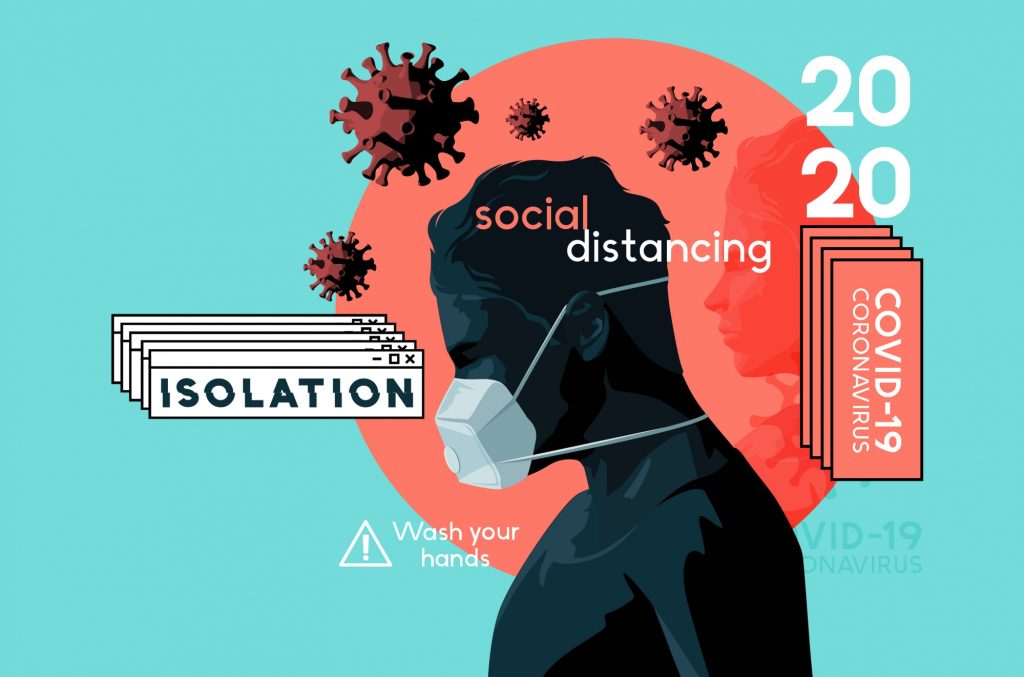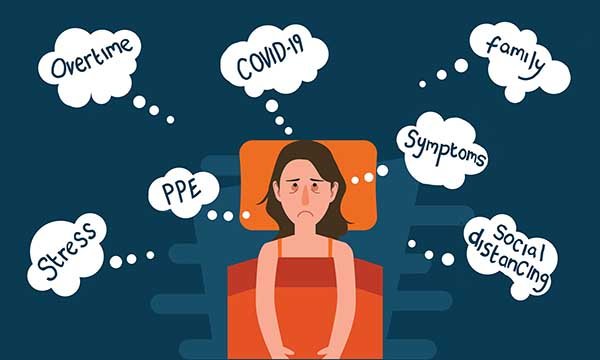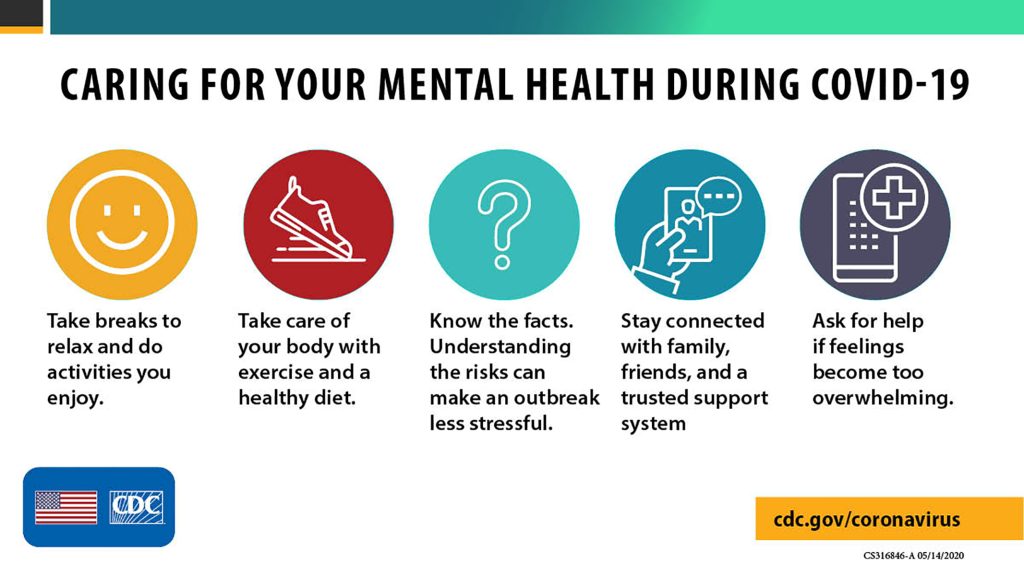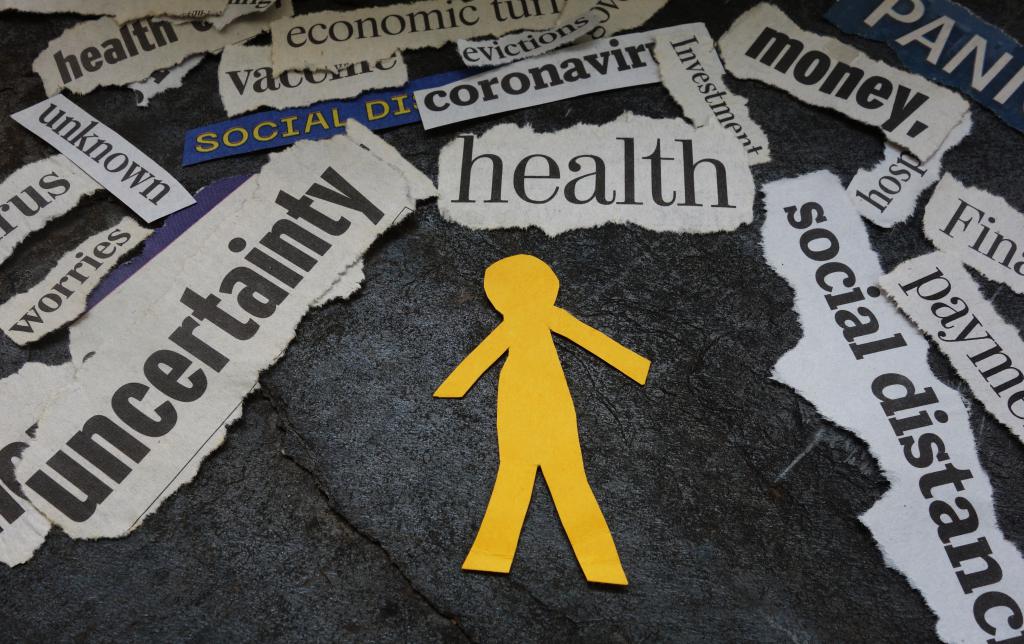
A societal fight for our lives has recently become a battle for youth in their minds. Throughout the COVID-19 pandemic, adolescent and young adult mental health/wellbeing has drastically declined, with a surge in anxiety, depression and stress. According to the American Psychological Association, Gen Z adolescents and adults have both reported having worsened mental health due to the “social side effects” of the pandemic. To further my understanding of this epidemic, I interviewed two people in which make up this generation, 1 of which is age 12, and the other at age 22.
I first spoke with Heather Ortega, my representative for Gen Z adolescents and student at Fieldstone Middle School. I began with the obvious question: how has your mental wellbeing changed since the impact of COVID-19? She began to tell me about the anxiety that would come from going into the outside world, with depression setting in due to lockdown and isolation. While being torn between the two, she also felt stressed- the weight of changes in schooling, lack of socialization, and the unsettling thought of life as she knows it being changed for good has taken a toll on her emotionally and mentally. She describes feeling depressed, numb, fearful, and hopeless- overwhelmingly feeling nothing at all and everything at once.
My next thought was: why? Why do you think your mental status was impacted the way it is? “In the beginning, it was hard adjusting to being around people”, she stated “[and] being stuck inside, seeing the same things with the same people every day was definitely stressful.” Along with the struggle of procrastination within online school, and a sudden lack of interest in things she used to enjoy, the start of this new life was not a good one.

“In the beginning, it was hard…”
Caption: Adolescent symptoms include feeling stressed due to life events and confinement, and anxiety.
Almost 2 years into the pandemic, I was also interested in looking at how Gen Z teens cope with these newfound emotions. For an optimistic spin on things, I asked Heather: Have you began to feel these symptoms less often/as severe compared to the beginning of COVID? When did you start to feel this way? Fortunately, she reported feeling slightly less depressed and anxious, as life began to reach some sort of normalcy. As the vaccine became approved by the FDA, and students were able to finally proceed to in-school learning, she reported feeling a lot more hopeful for the future of the pandemic, which led me to my next question- where do you see the status of the pandemic in the future?
“Hopefully, almost everyone will get vaccinated, and life will return to normal in the future.” As for now, she has found different coping mechanisms for dealing with the remaining conditions and symptoms of the pandemic. What do you do to cope with these feelings? She listed different ways to relax, including listening to music, drawing, and talking with her friends. Surprisingly, she also reported that the best way to cope is on her own, providing a sense of irony throughout this historical context. However, this also goes to show how time heals all wounds- she reports finding a balance between socializing and isolation, thanks to the timeline of experiences she went through this past year. For my final question, I wondered: who has helped you cope the most throughout the pandemic? Her answer: “you and my friends.” Aw! She continued, by telling me about her support system of people being there for her, and giving her someone to talk to; reminding her that her fight was not a lonely one.

My next interviewee was Caleb Adair, Gen Z young adult and essential worker. I began to ask him the same questions I asked Heather, starting with: how has your mental wellbeing changed since the impact of COVID-19? He responded feeling mostly stressed, with firsthand experience of watching the world get worse and worse. As he realized that more and more people were getting sick and dying daily, he also began to feel fearful for himself and his family.
In an attempt to elaborate on his previous answer, I asked my second question: Why do you think your mental status was impacted the way it is? “I couldn’t go out as much and it made me feel weird not being able to hang out with people [outside of work]”, and being put into quarantine was also another stressor. Furthermore, what added even more stress was how the pandemic did not hit home until March, while COVID was announced on December 31st. It was like waiting through the calm before the storm, and three months later, that storm finally hit.
With progress being made since the beginning of COVID-19, I asked: Have you began to feel these symptoms less often/as severe compared to the beginning of COVID? When did you start to feel this way? He reported feeling less and less stressed and anxious as the pandemic *seemed to* get better; however, he still remains somewhat stress and worried about the current and future states of the pandemic.
Where do you see the status of the pandemic in the future? “Hopefully over”, he stated. As many other’s, he hopes that with progress being made, such as the vaccine, we will continuously return to the state of normalcy we were at pre-COVID. “However, with the way things are now, I can also see us going back to Square 1, and going through another lockdown. It can go one of two ways.” With the underlying symptoms of COVID remaining, I asked- What do you do to cope with these feelings?
He described using music and talking to his friends as ways to cope with these feelings throughout the pandemic. For my final question, I asked: who has helped you cope the most throughout the pandemic? He responded with his friends and family being the most helpful throughout the pandemic.
As the number of COVID-19 cases continues to arise, levels of depression, anxiety and stress follow suit. However, the power of this pandemic has had some benefits- studies show that people have been able to spend more time with their families and pick up new hobbies. Most of all, mental health is starting to get the recognition it deserves, with multiple resources being released for those mentally impacted by COVID. For the 92% of Gen Z impacted by COVID-19, we can only keep making progress and continuing to look forward.

Sources:
American Psychological Association. (n.d.). Stress in america™ 2020: A National Mental Health Crisis. American Psychological Association. Retrieved October 9, 2021, from https://www.apa.org/news/press/releases/stress/2020/report-october.
Jones, E. A. K., Mitra, A. K., & Bhuiyan, A. R. (2021, March 3). Impact of covid-19 on Mental Health in Adolescents: A systematic review. International journal of environmental research and public health. Retrieved October 9, 2021, from https://www.ncbi.nlm.nih.gov/pmc/articles/PMC7967607/.
The generational impact of covid-19. COVID-19’s impact on each generation | Blue at Work from Wellmark. (n.d.). Retrieved October 9, 2021, from https://www.wellmark.com/blue-at-work/healthy-employees/generational-impacts-from-covid-19.
As I site possessor I believe the content matter here is rattling excellent , appreciate it for your efforts. You should keep it up forever! Best of luck.
Heya i am for the first time here. I found this board and I find It truly useful & it helped me out a lot. I hope to give something back and aid others like you helped me.
hello there and thanks on your info ?I have definitely picked up anything new from right here. I did alternatively experience several technical points the usage of this web site, since I skilled to reload the web site lots of times prior to I may get it to load properly. I were thinking about if your hosting is OK? Not that I am complaining, but sluggish loading instances occasions will sometimes affect your placement in google and can harm your high-quality ranking if advertising and ***********|advertising|advertising|advertising and *********** with Adwords. Anyway I抦 adding this RSS to my email and could glance out for a lot extra of your respective intriguing content. Ensure that you replace this again soon..
Have you ever considered publishing an ebook or guest authoring on other blogs? I have a blog based upon on the same subjects you discuss and would love to have you share some stories/information. I know my subscribers would value your work. If you are even remotely interested, feel free to shoot me an email.
What i do not realize is in reality how you are not actually much more smartly-favored than you might be now. You’re so intelligent. You realize therefore considerably relating to this topic, made me in my opinion imagine it from numerous numerous angles. Its like women and men aren’t interested except it is something to do with Girl gaga! Your individual stuffs excellent. Always take care of it up!
Thanks for your marvelous posting! I genuinely enjoyed reading it, you are a great author.I will ensure that I bookmark your blog and will often come back someday. I want to encourage you to definitely continue your great posts, have a nice day!